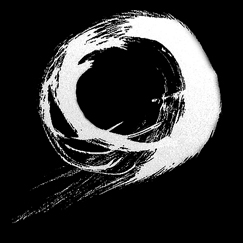
BuddhaWeg-Sangha
Mitglied der Association Bouddhiste Zen d'Europe
Mitglied der Deutschen Buddhistischen Union
|
Forgiveness
|
|
In thinking about the possibility for forgiveness, my first thought was that I don't have the power to forgive anyone; in fact, it's hubris for me to think that I can forgive someone else. At the same time, as a Zen Buddhist teacher, I believe that we are all one body, that no one is excluded from the Circle of Life. All of us--men, women, children, the killers, the killed, the tormentors, and the tormented--are billions of cells of one body. If this is the case, whom are we forgiving? If we're all one, what does it mean for an SS officer to ask a Jew for forgiveness? Our Zen Peacemaker Order conducts an annual bearing witness retreat at the concentration camps of Auschwitz-Birkenau. During our 1996 retreat, a man of Jewish descent, living in Denmark, stood up and spoke about forgiving all those who had perpetrated unbelievable cruelties at Auschwitz. A short while later I got up to my feet and added: "And then what? So you forgive, and then what? Is that the end of it? Or is there something else to be done?" Whatever forgiveness is, it is not putting an end to the matter. It is not marking an episode closed and completed--out of memory, out of mind. Forgiveness does not end bearing witness. If anything, it deepens the process of bearing witness. If I really believe that we are one body, then the killer, the torturer, the SS guard, are all me. Can I forgive myself? Can I see past the blaming, the accusing, the rage, and the guilt? If I can, then I can take action. I can begin to take care of the situation and the people around me. I can take care of this universe, which is none other than my body. At the Zen Peacemaker Order and in Zen centers of which I'm abbot, we start our day's schedule with a verse of atonement: "All evil karma ever committed by me since of old, on account of my beginningless greed, anger and ignorance, born of my body, mouth and consciousness, now I atone for it all." After chanting this verse we begin our morning meditation, and after that we go on to our daily peacemaking work and social action projects. How do we atone? By being at-one. By seeing that at every moment, a part of me is raping while another is being raped, a part of me is wantonly destroying while another part is being destroyed, a part of me goes hungry while another eats to excess. We are all interconnected. We are all one. If we get stuck in anger, in blame, and in guilt, then we are paralyzed, we can't act. When we can get beyond those things, when we can forgive, then the right action arises by itself, and we begin to take care of each other. Forgiveness doesn't mean that we let killing and destruction continue unchecked. If gangrene has infected my arm and I get stuck in blame and guilt, then I'm not taking care of my body and the gangrene will destroy me. Forgiveness is getting past the discussions of who's right and who's wrong, who's to blame and who isn't, and taking action. Which may mean radical treatment against the gangrene. It may even mean amputating my arm in order to save the rest of the body. Forgiveness means bearing witness to all aspects of ourselves, seeing how one aspect does something, another aspect suffers, and they're all me. In Buddhism we say that we are all constantly transmigrating from one realm to the other at every minute. There is the hell realm and the realm of the gods. There is also a realm of hungry ghosts. One of our images for a hungry ghost is a painfully thin person with a tiny mouth, a long, narrow throat and an immense stomach. The hungry ghost is always hungry, but has only a tiny capacity to absorb the nourishment that he needs. I am full of hungry ghosts. I'm full of clinging, craving, unsatisfied spirits. Each part of me that is struggling, in pain, unsatisfied, angry, and unresolved, is a hungry ghost. A starving child, an abusive parent, a drug addict who kills to get his fix, a brutal mercenary, they are nothing but hungry ghosts, and they are all starving, struggling aspects of me. "All evil karma ever committed by me since of old." Me is everyone and everything. It's the SS guard, it's the victims marching to their death, it's the city inhabitants looking away. "Now I atone for it all." By being at-one with all these hungry ghosts, all these people who are none other than myself, I let go of guilt, blame, and anger. I let go of fear and paralysis, and I take action. |